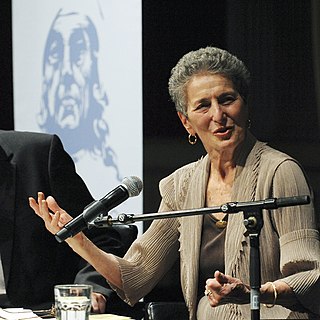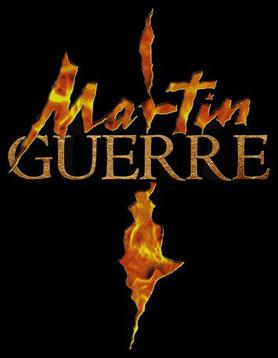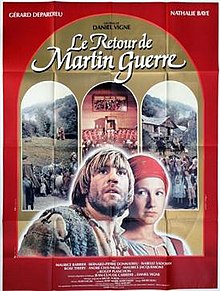
Gérard Xavier Marcel Depardieu is a French actor, known to be one of the most prolific in film history. He has completed over 250 films since 1967, almost exclusively as a lead. Depardieu has worked with over 150 film directors whose most notable collaborations include Jean-Luc Godard, François Truffaut, Maurice Pialat, Alain Resnais, Claude Chabrol, Ridley Scott, and Bernardo Bertolucci. He is the second highest-grossing actor in the history of French cinema behind Louis de Funès. As of January 2022, his body of work also includes countless television productions, 18 stage plays, 16 records and 9 books. He is known for having portrayed numerous leading historical and fictitious figures of the Western world including Georges Danton, Joseph Stalin, Honoré de Balzac, Alexandre Dumas, Auguste Rodin, Cyrano de Bergerac, Jean Valjean, Edmond Dantès, Christopher Columbus, Obélix, and Dominique Strauss-Kahn.

Isabelle Yasmine Adjani is a French actress and singer of Algerian and German descent.

Martin Guerre, a French peasant of the 16th century, was at the centre of a famous case of imposture. Several years after Martin Guerre had left his wife, child and village, a man claiming to be him appeared. He lived with Guerre's wife and son for three years.

The César Award for Best Actress in a Supporting Role is one of the César Awards, presented annually by the Académie des Arts et Techniques du Cinéma to recognize the outstanding performance in a supporting role of an actress who has worked within the French film industry during the year preceding the ceremony. Nominees and winner are selected via a run-off voting by all the members of the Académie.

Claude Sautet was a French film director and screenwriter.

My Father the Hero is a 1991 French film directed by Gérard Lauzier and starring Gérard Depardieu. An English language remake of the movie was made in 1994 with Gérard Depardieu reprising his role.

Natalie Zemon Davis, was an American-Canadian historian of the early modern period. She was the Henry Charles Lea Professor of History at Princeton University. Her work originally focused on France, but it later broadened to include other parts of Europe, North America, and the Caribbean. For example, her book, Trickster Travels (2006), views Italy, Spain, Morocco and other parts of North Africa and West Africa through the lens of Leo Africanus's pioneering geography. Davis' books have all been translated into other languages: twenty-two for The Return of Martin Guerre. She was the second female president of the American Historical Association.

Cyrano de Bergerac is a 1990 French period comedy-drama film directed by Jean-Paul Rappeneau and based on the 1897 play of the same name by Edmond Rostand, adapted by Jean-Claude Carrière and Rappeneau. It stars Gérard Depardieu, Anne Brochet and Vincent Perez. The film was a co-production between companies in France and Hungary.

Pierre Richard is a French actor, film director and screenwriter, best known for the roles of a clumsy daydreamer in comedy films. Richard is considered by some, such as Louis de Funès and Gérard Depardieu, to be one of the greatest French comedians of the last 50 years. He is also a film director and occasional singer.

Guillaume Jean Maxime Antoine Depardieu was a French actor, winner of a César Award, and the second oldest child of Gérard Depardieu.

Nathalie Marie Andrée Baye is a French film, television, and stage actress. She began her career in 1970 and has appeared in more than 80 films. A ten-time César Award nominee, her four wins were for Every Man for Himself (1980), Strange Affair (1981), La Balance (1982), and The Young Lieutenant (2005). Her other films include Day for Night (1973), Catch Me If You Can (2002), Tell No One (2006), and The Assistant (2015). In 2009, she was appointed a Chevalier of the Legion of Honour.

Julie Marion Depardieu is a French actress who has appeared in a number of successful films.

The Moon in the Gutter is a 1983 French drama film directed by Jean-Jacques Beineix. It was entered into the 1983 Cannes Film Festival.

Get Out Your Handkerchiefs is a 1978 French romantic comedy film directed by Bertrand Blier and starring Carole Laure, Gérard Depardieu, Patrick Dewaere and Riton Liebman. The film won the Academy Award for Best Foreign Language Film at the 51st Academy Awards.

Martin Guerre is a two-act musical with a book by Claude-Michel Schönberg and Alain Boublil, lyrics by Alain Boublil, Edward Hardy and Stephen Clark, and music by Claude-Michel Schönberg.

Danton is a 1983 French-language film depicting the last weeks of Georges Danton, one of the leaders of the French Revolution. It is an adaptation of the 1929 play The Danton Case by Stanisława Przybyszewska.

The 8th César Awards ceremony, presented by the Académie des Arts et Techniques du Cinéma, honoured the best French films of 1982 and took place on 26 February 1983 at Le Grand Rex in Paris. The ceremony was chaired by Catherine Deneuve and hosted by Jean-Claude Brialy. La Balance won the award for Best Film.

Catherine Jacob is a French film and theatre actress who has won a César Award for her role in Life Is a Long Quiet River (1988), and was nominated for Best Supporting Actress in Tatie Danielle (1990), Merci la vie (1991) and Neuf mois (1994). She has been two-time president of the Lumières Award. She is known for her voice and her charisma.

Swann Arlaud is a French actor. He has appeared in films such as Romantics Anonymous (2010), Elles (2011), Les Anarchistes (2015), The Wakhan Front (2015), Baden Baden (2016), Bloody Milk (2017), By the Grace of God (2019), Valiant Hearts (2021), and Anatomy of a Fall (2023). Arlaud has won three César Awards. He won the César Award for Best Actor for Bloody Milk in 2018, and the César Award for Best Supporting Actor for both By the Grace of God in 2020 and for Anatomy of a Fall in 2024.

Lost Illusions is a 2021 French drama film directed by Xavier Giannoli, from a screenplay by Giannoli and Jacques Fieschi, based upon the first two parts of Illusions perdues (1837–43) by Honoré de Balzac. It stars Benjamin Voisin, Xavier Dolan, Vincent Lacoste, Cécile de France, Gérard Depardieu, and Jeanne Balibar.



















